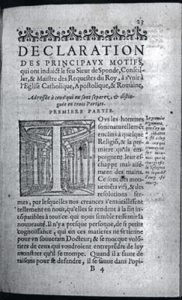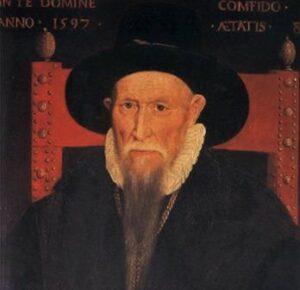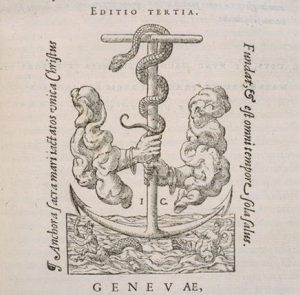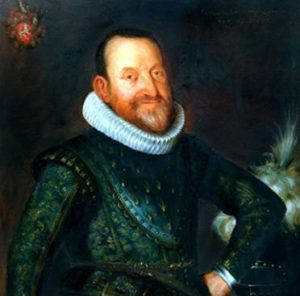The politician
He was born in Mauléon in the Basque country and brought up in the Reformed faith. He was a brilliant student, notably at Lescar and Basel, where he met François Hotman.
As early as 1585 he became a political agent for Henri de Navarre, who was to become Henri IV. When Henri IV was proclaimed king, de Sponde became his counsellor and master of claims. In 1589 he was made prisoner by the “Ligue” and, upon his liberation, was appointed lieutenant-general at La Rochelle.
The poet of love and religion
Best known for his poems “Amours” published in 1598, de Sponde was also a great religious poet :
- His Méditations sur quatre Psaumes (Meditations on four Psalms), were dedicated to the king of Navarre in 1588 ;
- Essay de quelques poèmes chrétiens (Attempts to write some Christian poems) including the Douze sonnets de la mort (Twelve sonnets on death), which are a fine example of the baroque style.
In his Avertissement au Roi (Warning to the King), 1589, he tried to convince Henri IV that « il n’est pas bienséant de changer de religion » (changing religion is unbecoming). But in 1593 Jean de Sponde also converted to Catholicism. As a self justification, he published Response d’un catholique apostolique romain au Protestant (Response of an apostolic roman catholic to a Protestant) in 1593, and in 1594 the Déclaration des principaux motifs qui induisent le sieur de Sponde, conseiller et maître des requêtes du roi à s’unir à l’Eglise (Declaration of the main reasons for Mister de Sponde, counsellor and master of claims for the king, to join the Church). Such a reversal triggered off a violent reaction among the Protestants throughout the south-west region and also a general theological debate, especially with Théodore de Bèze.
Agrippa d’Aubigné who had never admitted Henri IV’s solemn renunciation also attacked Jean de Sponde « ayant sacrifié son âme pour l’Eglise » (who sacrificed his soul to the Church).
Jean de Sponde, Stanzas for the Holy Supper :
« Ta mort fut notre mort, ta vie est notre vie,
Puisqu’elle est de ta chair et de ton sang nourrie :
Vivant ainsi, Seigneur, craindrons-nous de mourir ? »
(Your death was our death, your life is our life ;
it was your flesh and your blood that nourished it :
living thus, Lord, shall we fear death ?)






